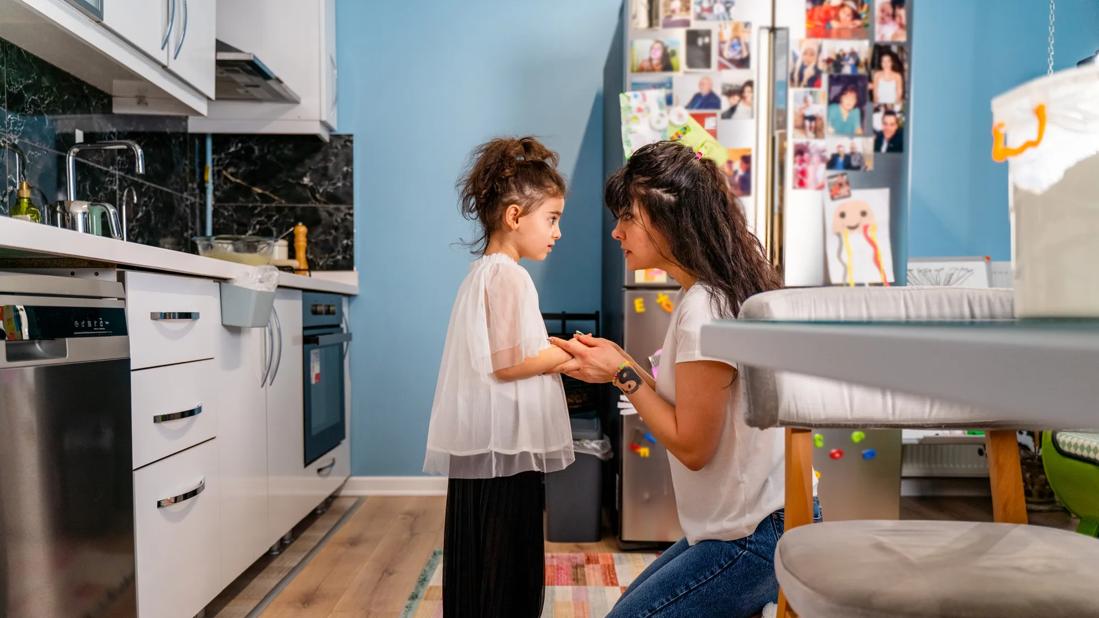Spanking is linked to future behavioral and emotional problems

It’s time for parents to abandon the old adage that kids “deserve a good spanking” every once in a while.
Advertisement
Cleveland Clinic is a non-profit academic medical center. Advertising on our site helps support our mission. We do not endorse non-Cleveland Clinic products or services. Policy
The American Academy of Pediatrics (AAP) issued a strong statement in 2018, advising parents not to spank their children, based on a growing pile of studies showing that the disciplinary technique does more harm than good.
“The new AAP statement includes data that show that kids who were spanked in their early years were more likely to be more defiant, show more aggressive behavior later in preschool and school, and have increased risk for mental health disorders and lower self-esteem,” says pediatrician Karen Estrella, MD.
Research over the last 20 years has demonstrated that spanking increases aggression in young children and is ineffective in changing their undesirable behavior, the AAP says. Studies have also linked spanking to an increased risk of mental health disorders and impaired brain development.
The AAP is an influential professional association that represents some 67,000 pediatricians across the country. But this evolution in thinking about parental discipline isn’t just limited to medical professionals — fewer parents raising children today seem to support spanking. In a 2013 poll, about half of parents under the age of 36 reported having spanked their own children. Among all of the older generations, that number was 70% or higher.
Advertisement
While spanking may create a sense of fear in your child in the moment, it won’t improve behavior over the long term. In fact, regular spanking normalizes the act of hitting and can lead to aggressive behavior that encourages continued conflict between you and your child.
“Children view their parents as role models,” Dr. Estrella says. “Aggressive behavior will only generate more negative behaviors in a child.”
In its statement, the AAP also condemned verbal abuse, explaining that yelling in a way that insults, humiliates or shames a child also has negative effects on brain development.
“Research shows that kids exposed to toxic stress have changes in their cognitive capacities later on,” she adds.
Try these three steps to effectively discipline your child:
Dr. Estrella builds on those and other recommendations from the AAP with these additional tips:
“Talk with your pediatrician if those behaviors are common at your kid’s age about what strategies to use,” she adds. “If needed, a pediatric psychologist, as well as community resources can provide parenting classes for additional guidance or support.”
Advertisement

Sign up for our Health Essentials emails for expert guidance on nutrition, fitness, sleep, skin care and more.
Learn more about our editorial process.
Advertisement

The best parenting style balances enforcing rules and showing plenty of love

If parents can’t get along with one another, they’ll need to determine what’s best for their child in separate situations

This burnout is characterized by physical and mental exhaustion and feelings like worry, guilt and overwhelm

It’s important to share the news in an honest and age-appropriate way and to open the lines of communication going forward

Don’t lose sleep over color palettes — your ‘sad beige baby’ couldn’t care less

Communicating with your family, setting expectations and finding healthy distractions can make life easier once your kiddo flies the coop

Setting specific expectations and praising good behavior are crucial to cultivating discipline

Posting intimate details of your child’s life on social media, like their birth date and school name, can have serious consequences

Even small moments of time outdoors can help reduce stress, boost mood and restore a sense of calm

A correct prescription helps your eyes see clearly — but as natural changes occur, you may need stronger or different eyeglasses

Both are medical emergencies, but they are very distinct events with different causes